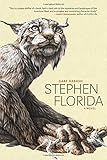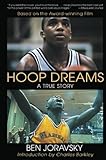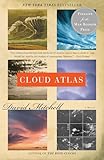The Dead Rabbits moniker dates back to a 19th-century New York street gang, but it’s about to have a major resurgence in the form of a new literary press, Dead Rabbits Books—itself a spinoff of New York’s Dead Rabbits Reading Series, founded in 2014 by writers Devin Kelly, Katie Rainey, and Katie Longofono, who met while attending the MFA program at Sarah Lawrence College.
Brian Birnbaum pitched the idea for Dead Rabbits Books to Rainey, his domestic (and now business) partner, in 2018, following a litany of failed attempts (including a near-miss) to publish his debut novel, Emerald City. After roping in software engineer Jon Kay, the trio decided to make Emerald City their inaugural title. (They have also announced upcoming titles by David Hollander, Annie Krabbenschmidt, and Rainey.) The trio wanted to use Birnbaum’s novel to launch the press before asking any other authors to trust them with their work. But Birnbaum also took particular inspiration from Sergio De La Pava, who had initially self-published his novel A Naked Singularity.
Having also attended Sarah Lawrence from 2013 to 15, I was privileged to read Birnbaum’s Emerald City in a germinal state at the end of our time together there; I later received a revised draft in the fall of 2017 that significantly expanded the novel’s scope and the depth of its characters. The novel’s sprawl is difficult to summarize in a one-line grabber, but, beyond the description featured on the Dead Rabbits website, suffice it to say that it’s one of the most electrifying performances by a debut novelist this side of the year 2000—a heartrending tragedy of addiction, an absurdist comedy of privilege and inadequacy, an inter-generational crime saga to rival The Godfather, a disarmingly touching love story, and, at bottom, a book about the ineradicable ties of family.
Earlier this year, as Birnbaum was in the final stages of preparing the book for publication, I sat down with him in his apartment in Harlem—Chet Baker crooning in the background in harmony with the whines of Birnbaum and Rainey’s dog, Rosetta—to learn more about the evolution of his writing and the practical considerations of running a small press.
The Millions: As I recall, you wrote something like three novels before Emerald City.
Brian Birnbaum: Yeah. Very bad ones.
TM: What did you learn by writing those novels, and at what point during the writing of Emerald City did you think that this would be the one to get published?
BB: I didn’t. I knew I was going to try, but here’s the thing: the third novel I wrote, The Material, I did try to get that published—if you call querying like three or four people “trying.” I got responses from an agent and an editor who were saying “Look, you’re 23 years old, and you’re clearly somewhat good at this, but…” So, I realized immediately: this is not it, and I’m not going to go back and hack this again.
TM: So, you wouldn’t want to publish that today?
 BB: Oh no, no, no, no, no, no, no, no. No way. Even at that point, I didn’t want to go back and work on it. That’s when I started Emerald City. I had just turned 24. So, what I learned was that I sucked. I think most people go into writing with a lack of self-confidence, whereas I went in with a wealth of bravado. But bravado is based on insecurity, so subconsciously I knew I wasn’t that good, but I had to have people tell me I wasn’t that good. Also, with [the second novel I wrote] I had to learn not to imitate David Foster Wallace. I had just read Infinite Jest, right after college, and I wrote like him for a year or two and it was just, you know…you’re trying to emulate your heroes kind of thing. It pushed me off track a little bit because you’re not doing your thing, you’re not doing you. The first novel I tried to write was actually a lot better than the second one.
BB: Oh no, no, no, no, no, no, no, no. No way. Even at that point, I didn’t want to go back and work on it. That’s when I started Emerald City. I had just turned 24. So, what I learned was that I sucked. I think most people go into writing with a lack of self-confidence, whereas I went in with a wealth of bravado. But bravado is based on insecurity, so subconsciously I knew I wasn’t that good, but I had to have people tell me I wasn’t that good. Also, with [the second novel I wrote] I had to learn not to imitate David Foster Wallace. I had just read Infinite Jest, right after college, and I wrote like him for a year or two and it was just, you know…you’re trying to emulate your heroes kind of thing. It pushed me off track a little bit because you’re not doing your thing, you’re not doing you. The first novel I tried to write was actually a lot better than the second one.
TM: Can you pinpoint what was bad about these early novels?
BB: A lack of ability to express emotional depth, really. That’s what it comes down to.
TM: So where do things stand with the Emerald City manuscript now?
BB: I am fucking relieved to say that I am done, it’s over, it’s with the book designer.
TM: You’ve locked in the text?
BB: I’ve locked it in, the acknowledgements are there, everything is there. Those last few months were hell, and I’m just starting to come out of that hole where I was really abusing myself to get this done.
TM: To what extent were you inspired by Sergio De La Pava when you decided to publish the book yourself?
 BB: Very much so. Sergio and his wife, Susanna, were our role models, and they’ve helped us immensely. Susanna is honestly the brains of this operation. She’s beyond brilliant. She helped us write our contracts for our writers, stuff like that. Sergio’s going to blurb it. I don’t know if I told you, Gabe Habash just gave me a blurb, which was one of the greatest days of my life because Stephen Florida is easily one of my favorite books.
BB: Very much so. Sergio and his wife, Susanna, were our role models, and they’ve helped us immensely. Susanna is honestly the brains of this operation. She’s beyond brilliant. She helped us write our contracts for our writers, stuff like that. Sergio’s going to blurb it. I don’t know if I told you, Gabe Habash just gave me a blurb, which was one of the greatest days of my life because Stephen Florida is easily one of my favorite books.
TM: Have you been forced to read more contemporary fiction than you used to, just by virtue of being a publisher?
BB: I just think contemporary fiction is where it’s at. I think fiction is better than it’s ever been. Which is ironic because fiction is technologically faded in a certain sense, but it’ll always be an artifact, it’s always going to be of interest. But at the same time, I think it’s better than ever. It’s like anything—you look at the NBA now compared to 50 years ago and it’s like a joke. The ability now is just through the roof. They’re building on things that have been going on for too long.
TM: Is there anything you’re worried about as you go forward with publishing your first couple of titles?
BB: Some of the little stuff, like I’m nervous that we’re going to launch and people will order our book and it’ll have problems. Like, the book’s going to be fucked up or the ordering process will be fucked up. I just want to make sure we’re legit.
TM: I ordered a Dead Rabbits coffee mug and it came in about seven days.
BB: Not bad. And the good news is we have Jon Kay, and he’s a genius. He worked at Amazon, he knows how to program, so we’re pretty good to go. But those are the only things I’m really nervous about. Obviously, I want to sell copies, but I think that just comes as a product of hard work and putting out good stuff. That’s out of our hands. So, I’m not really worried that much. Whatever happens, we’ll just have to learn from it and move on.
TM: Do you enjoy networking within the literary community? I’ve seen you work the room at KGB Bar, and elsewhere—does that come naturally to you?
BB: Socializing comes naturally to me, social media does not. Self-promotion is tough for me. I’m learning social media, I learned Twitter pretty well, I’ve gotten a shit-ton of followers in a short amount of time—which is good and everything, but I still don’t want to be doing it. I want to be reading and I want to be writing and I want to be experiencing existential things that don’t have to do with something that feels like a job. But that’s the beauty of Dead Rabbits—we are trying to build communities in real life, we’re founded off the Manhattan reading series, we’re building satellite reading series [in Little Rock and Los Angeles], we’re trying to have events, and that stuff is awesome to me. I love people, and as much as I hate people, I love people.
TM: Did you have to talk David Hollander, your mentor at Sarah Lawrence, into publishing his upcoming book, Anthropica, or was he pretty open to it from the beginning?
BB: He was more amenable than I thought he was going to be. I think Katie handled the initial talks. It took a little while, but I read it and it was amazing. It’s so funny and smart. And more than anything, it’s just something that no one’s done before, it’s actually reading something innovative, and that’s the reason we wanted to publish it.
 TM: How does it compare to L.I.E., his first novel?
TM: How does it compare to L.I.E., his first novel?
BB: I think it’s a hundred times better. L.I.E. is great, but Anthropica is…The changes I suggested or whatever he goes with, I think it is only a couple rungs from being a masterpiece, I think it’s absolutely brilliant. And I don’t say this as some fucking proselytizer—this book is not for everyone, but that’s fine. For the people that it is for, it’s going to be a masterpiece. The linguistic gymnastics are definitely on an Olympic level.
 TM: Now, as to Emerald City: I’ve read two drafts, and I look forward to seeing the final edit soon. The story is very diffuse on a narrative level. It’s a family saga, it’s a drug thriller, it’s an almost Hoop Dreams-like sports drama, and the whole way through it’s deeply attuned to its characters’ psychologies. Did you think about genre at all when you were writing?
TM: Now, as to Emerald City: I’ve read two drafts, and I look forward to seeing the final edit soon. The story is very diffuse on a narrative level. It’s a family saga, it’s a drug thriller, it’s an almost Hoop Dreams-like sports drama, and the whole way through it’s deeply attuned to its characters’ psychologies. Did you think about genre at all when you were writing?
BB: I didn’t. I think if you come at a novel from a genre perspective, you are writing from a different place. I think you’re writing specifically for an audience and to disseminate the book. Which is not a bad thing. It’s more of a business approach. My approach is that I’m writing because I love language and I want to tell a story, and whatever that story calls for is what I’m going to write.
TM: Something that came up when you workshopped parts of this novel at Sarah Lawrence had to do with how you portrayed people of color. I remember a long discussion in workshop about the dialogue, and questions of appropriation and representation. Did you have any trepidation about writing characters of other races?
BB: If you can’t write about other races, then the only way this conversation ends is that you can’t write about anyone but yourself. However, if you think that just because you listen to hip hop you can write black characters, you’re sorely mistaken. You have to have experience. You should be able to write about whatever you want, but it has to be good. And I think this is a necessary conversation—if I had chosen to write from the perspective of one of my black characters, that would have been a huge risk—and that’s still something I’m considering for my next novel project, and I have to ask myself, how do I deserve writing about this?
TM: As I recall, you discovered David Mitchell while writing Emerald City.
BB: Very early on.
TM: Did he change the way you write the way Wallace did?


 BB: I think he’s probably my favorite writer. Cloud Atlas and The Thousand Autumns of Jacob de Zoet are pure masterpieces. He’s operating on a level that I’ll never reach. He changed the game because he was the first maximalist writer I read who, paradoxically, reined me in. He’s writing these sparkling sentences that are really punchy, really cogent, and I loved him as much as I loved Wallace, but it was so different. It’s more mature in a way, and where I want to be heading now. Same with Rachel Kushner. She’s a maximalist writer but she’s doing it in a compacted way. The Flamethrowers was revolutionary for me. I think her prose, especially those first hundred pages, are just like—whoa.
BB: I think he’s probably my favorite writer. Cloud Atlas and The Thousand Autumns of Jacob de Zoet are pure masterpieces. He’s operating on a level that I’ll never reach. He changed the game because he was the first maximalist writer I read who, paradoxically, reined me in. He’s writing these sparkling sentences that are really punchy, really cogent, and I loved him as much as I loved Wallace, but it was so different. It’s more mature in a way, and where I want to be heading now. Same with Rachel Kushner. She’s a maximalist writer but she’s doing it in a compacted way. The Flamethrowers was revolutionary for me. I think her prose, especially those first hundred pages, are just like—whoa.
TM: You’ve talked on the Dead Rabbits podcast about your experience in an MFA. You chose Sarah Lawrence because David Hollander was teaching there, but it seemed like you didn’t totally buy into the MFA experience in terms of your development as a writer.
BB: And in hindsight, I totally buy into it. Which I have a problem with saying, because I hate these kind of monetized systems that are just pumping out writers who will never see the light of day. But I will say that my MFA experience was extraordinary. Sarah Lawrence was the best school I could have gone to. The culture we had—not only on campus, but also our own little culture on Stillwell Avenue…it was perfect: being removed from the city, being forced to write, the time that they give you to write, instead of loading you with all this bullshit.
TM: I want to end by returning to something you said earlier. You mentioned that fiction is technologically faded. So how do you feel about the future of books, given that you’ve launched a literary press?
BB: I think writing will become obsolete when we are able to directly access our brains. It’ll be like Hieroglyphs—they’re beautiful, but we don’t need that shit anymore. People will still read books; they’ll be fascinated by them. But I’m not being pessimistic or cynical about writing itself; it’s served a purpose that can’t be overstated. And I’m more than overjoyed to be starting a small press. I think it’s still completely necessary, because we still run on fiction. That’s what the human race runs on because we don’t know what’s going on in our minds.
The post Fiction Is Better Than It’s Ever Been: The Millions Interviews Brian Birnbaum appeared first on The Millions.
from The Millions https://ift.tt/2Zy1JPV
Comments
Post a Comment